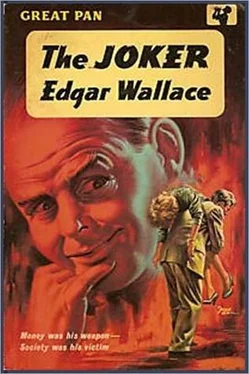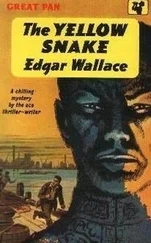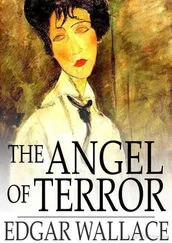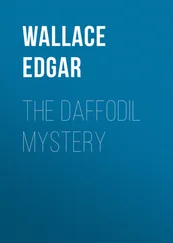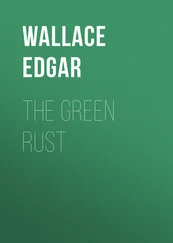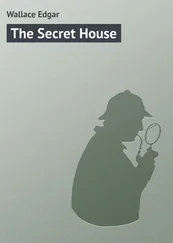Edgar Wallace - The Joker
Здесь есть возможность читать онлайн «Edgar Wallace - The Joker» весь текст электронной книги совершенно бесплатно (целиком полную версию без сокращений). В некоторых случаях можно слушать аудио, скачать через торрент в формате fb2 и присутствует краткое содержание. Год выпуска: 0101, Жанр: Старинная литература, на английском языке. Описание произведения, (предисловие) а так же отзывы посетителей доступны на портале библиотеки ЛибКат.
- Название:The Joker
- Автор:
- Жанр:
- Год:0101
- ISBN:нет данных
- Рейтинг книги:5 / 5. Голосов: 1
-
Избранное:Добавить в избранное
- Отзывы:
-
Ваша оценка:
- 100
- 1
- 2
- 3
- 4
- 5
The Joker: краткое содержание, описание и аннотация
Предлагаем к чтению аннотацию, описание, краткое содержание или предисловие (зависит от того, что написал сам автор книги «The Joker»). Если вы не нашли необходимую информацию о книге — напишите в комментариях, мы постараемся отыскать её.
The Joker — читать онлайн бесплатно полную книгу (весь текст) целиком
Ниже представлен текст книги, разбитый по страницам. Система сохранения места последней прочитанной страницы, позволяет с удобством читать онлайн бесплатно книгу «The Joker», без необходимости каждый раз заново искать на чём Вы остановились. Поставьте закладку, и сможете в любой момент перейти на страницу, на которой закончили чтение.
Интервал:
Закладка:
‘Take that to Mr Ellenbury. I think he will see me,’ he said.
The clerk returned in a few seconds and ushered him into a cupboard of a place which could not have been more than seven feet square. Mr Ellenbury rose nervously from behind his microscopic desk and offered a limp, damp hand.
‘Good morning, Inspector,’ he said. ‘We do not get many visitors from Scotland Yard. May I inquire your business?’
‘I am making inquiries regarding the death of a woman named Gibbins,’ said the visitor.
Mr Ellenbury was not startled. He bowed his head slowly. ‘She was the woman taken out of the Regent’s Canal some weeks ago; I remember the inquest,’ he said.
‘Her mother, Louise Gibbins, had been drawing a quarterly pension of thirteen pounds, which, I understand, was sent by you?’
It was a bluff designed to startle the man into betraying himself but, to Jim Carlton’s astonishment, Mr Ellenbury lowered his head again.
‘Yes,’ he said, ‘that is perfectly true. I knew her mother, a very excellent old lady who was for some time in my employ. She was very good to my dear wife, who is an invalid, and I have made her an allowance for many years. I did not know she was dead until the case of the drowned charwoman came into court and caused me to make inquiries.’
‘The allowance was stopped before these facts wire made public,’ challenged Jim Carlton, and again he was dumbfounded when the lawyer agreed.
‘It was delayed—not stopped,’ he said, ‘and it was only by accident that the money was not sent at the usual time. Fortunately or unfortunately, I happened to be rather ill when the allowance should have been sent off. The day I returned to the office and dispatched the money I learnt of Mrs Gibbins’s death. It is clear that the woman, instead of informing me of her mother’s death, suppressed the fact in order that she might benefit financially. If she had lived and it had come to my notice, I should naturally have prosecuted her for embezzlement.’
Carlton knew that his visit had been anticipated, and the story cut and dried in advance. To press any further questions would be to make Harlow’s suspicion a certainty. He could round off his inquiry plausibly enough, and this he did.
‘I think that is my final question in the case,’ he said with a smile. ‘I am sorry to have bothered you, Mr Ellenbury. You never met Miss Annie Gibbins?’
‘Never,’ replied Ellenbury, with such emphasis that Jim knew he was speaking the truth. ‘I assure you I had no idea of her existence.’
From one lawyer to another was a natural step: more natural since Mr Stebbings’ office was in the vicinity, and this interview at least held one pleasant possibility—he might see Aileen.
She was a little staggered when he entered her room.
‘Mr Stebbings!—why on earth—?’ And then penitently: ‘I’m so sorry! I am not as inquisitive as I appear!’
Mr Stebbings, who was surprised at nothing, saw him at once and listened without comment to the detective’s business.
‘I never saw Mr Marling except once,’ he said. ‘He was a wild, rather erratic individual, and as far as I know, went to the Argentine and did not return.’
‘You’re sure that he went abroad?’ asked Jim.
Mr Stebbings, being a lawyer, was too cautious a man to be sure of anything. ‘He took his ticket and presumably sailed; his name was on the passenger list. Miss Alice Harlow caused inquiries to be made; I think she was most anxious that Marling’s association with Mr Harlow should be definitely broken. That, I am afraid, is all I can tell you.’
‘What kind of man was Marling? Yes, I know he was wild and a little erratic, but was he the type of man who could be dominated by Harlow?’
A very rare smile flitted across the massive face of the lawyer.
‘Is there anybody in the world who would not be dominated by Mr Harlow?’ he asked dryly. ‘I know very little of what is happening outside my own profession, but from such knowledge as I have acquired I understand that Mr Harlow is rather a tyrant. I use the word in its original and historic sense,’ he hastened to add.
Jim made a gentle effort to hear more about Mr Harlow and his earlier life. He was particularly interested in the will, a copy of which he had evidently seen at Somerset House, but here the lawyer was adamant. He hinted that, if the police procured an order from a judge in chambers, or if they went through some obscure process of law, he would have no alternative but to reveal all that he knew about his former client; otherwise—
Aileen was not in her room when he passed through, and he lingered awhile, hoping to see her, but apparently she was engaged (to her annoyance, it must be confessed) with the junior partner; he left Bloomsbury with a feeling that he had not extracted the completest satisfaction from his visits.
At the corner of Bedford Place a blue Rolls was drawn up by the sidewalk, and so deep was he in thought that lie would have passed, had not the man who was sitting at the wheel removed the long cigar from his white teeth and called him by name. Jim turned with a start. The last person he expected to meet at this hour of the morning in the prosaic environment of Theobald’s Road.
‘I thought it was you.’ Mr Harlow’s voice was cheerful, his manner a pattern of geniality. ‘This is a fortunate meeting.’
‘For which of us?’ smiled Jim, leaning his elbow on the window opening and looking into the face of the man.
‘For both, I hope. Come inside, and I’ll drive you anywhere you’re going. I have an invitation to offer and a suggestion to make.’
Jim opened the door and stepped in. Harlow was a skilful driver. He slipped in and out of the traffic into Bedford Square, and then: ‘Do you mind if I drive you to my house? Perhaps you can spare the time?’
Jim nodded, wondering what was the proposition. But throughout the drive Mr Harlow kept up a flow of unimportant small talk, and he said nothing important until he showed his visitor into the beautiful library. Mr Harlow threw his heavy coat and cap on to one of the red settees, twisted a chair round, so that it revolved like a teetotum, and set it down near his visitor.
‘Somebody followed you here,’ he said. ‘I saw him out of the tail of my eye. A Scotland Yard man! My dear man, you are very precious to the law.’ He chuckled at this. ‘But I bear you no malice that you do not trust me! My theory is that it is much better for a dozen innocent men to come under police surveillance than for a guilty man to escape detection. Only it is sometimes a little unnerving, the knowledge that I am being watched. I could stop it at once, of course. The Courier is in the market—I could buy a newspaper and make your lives very unpleasant indeed. I could raise a dozen men up in Parliament to ask what the devil you meant by it. In fact, my dear Carlton, there are so many ways of breaking you and your immediate superior that I cannot carry them in my head!’
And Jim had an uncomfortable feeling that this was no vain boast.
‘I really don’t mind,’ Harlow went on; ‘it annoys me a little, but amuses me more. I am almost above the law! How stupid that sounds!’ He slapped his knee and his rich laughter filled the room. ‘Of course I am; you know that! Unless I do something very stupid and so trivial that even the police can understand that I am breaking the law, you can never touch me!’
He waited for some comment here, but Jim was content to let his host do most of the talking. A footman came in at that moment pushing a basket trolley, and, to Jim’s surprise, it contained a silver tea-service, in addition to a bottle of whisky, siphon and glasses.
‘I never drink,’ explained Harlow. ‘When I say “never,” it would be better if I said “rarely.” Tea-drinking is a pernicious habit which I acquired in my early youth.’ He lifted the bottle. ‘For you—?’
Читать дальшеИнтервал:
Закладка:
Похожие книги на «The Joker»
Представляем Вашему вниманию похожие книги на «The Joker» списком для выбора. Мы отобрали схожую по названию и смыслу литературу в надежде предоставить читателям больше вариантов отыскать новые, интересные, ещё непрочитанные произведения.
Обсуждение, отзывы о книге «The Joker» и просто собственные мнения читателей. Оставьте ваши комментарии, напишите, что Вы думаете о произведении, его смысле или главных героях. Укажите что конкретно понравилось, а что нет, и почему Вы так считаете.
